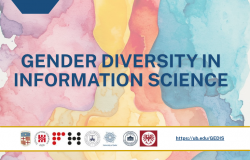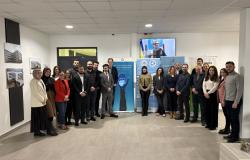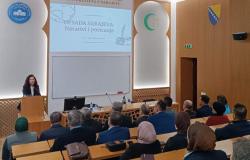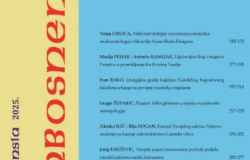Call for Abstracts | Law, Politics and Social Movements in Illiberal Times: Resistance, Reaction and Oppression
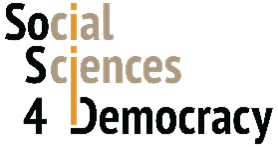
Call for Abstracts
The Social Sciences for Democracy project (SOS4democracy) invites you to submit paper abstracts for its second annual conference.
Law, Politics and Social Movements in Illiberal Times: Resistance, Reaction and Oppression
Venue: University of Sarajevo – Faculty of Law, Sarajevo, Bosnia and Herzegovina
Dates: 18-20 June 2025
Law encompasses a set of formally recognised rules of behaviour that are enforceable by social and/or governmental institutions (police, judiciary, administrative bodies) or semi-governmental institutions (e.g., agencies). It can also be defined as an instrument of a ruling class or political party to pursue its ideological goals. Furthermore, it can be perceived as a legitimising instrument of oppression against political opponents. It can also be seen as a way and a possibility of change, improvement, and transformation. Politics encompassesdifferent actions and activitiesassociated with improving someone’s status and increasing power within society,and it is closely related to law-making processes. It is usually associated with the mechanisms of governance and state institutions, including structures and processes through which they work together with a broader society. Social movements are organised efforts by groups to challenge or defend social and legal norms and political structures. On the one hand, social movements advocating for human rights and freedoms are perceived as a threat to illiberal regimes, as they challenge the status quo and can mobilise public dissent against authoritarian practices. As a result, social movements are often oppressed through restrictive laws, censorship, and state-sponsored violence, which undermine their ability to mobilise and advocate for change. On the other hand, populist social movements can push liberal and democratic systems towards illiberal, anti-democratic, and/or totalitarian systems and practices.
To contribute to the growing research on contemporary illiberal regimes, we invite you to submit paper abstracts focusing on the following themes:
- Illiberal systems and the centralisation of power in the executive branch
- Illiberal systems and the suppression of political opponents and other groups (e.g., critical journalists, activists, researchers, LGBT community, ethnic minorities, religious minorities)
- The role of technology and artificial intelligence (AI) in reshaping democratic environments, social movements, and the rule of law
- Social movements in illiberal democratic systems: challenges and opportunities
- Social movements in liberal democracies: How to prevent democratic backsliding and authoritarian laws and practices?
- Populist political and social movements in Europe: A legitimate democratic expression or a way towards introducing anti-democratic systems?
- Democratic degradation, democratic decay, and democratic backsliding: theory and practice
- The role of the judiciary in protecting democracy and political rights: moral and normative perspectives
- Human rights challenges and illiberal democracy: exploring the impact of populist movements on human rights in illiberal democracies and discussing legal strategies to preserve fundamental rights and values
- Legal implications of democratic backsliding, cases of manipulating legal frameworks, and the role of power-sharing in preserving democratic values.
The conference welcomes researchers from social sciences and humanities, practitioners, activists, students, and others engaged in research and advocacy on the rule of law, human rights, and fundamental freedoms in contemporary democracies.
Venue & accessibility: The conference will take place over three full days from 18 to 20 June 2025 at the University of Sarajevo – Faculty of Law. This will be an entirely in-person meeting with no option for virtual attendance or presentation.
General guidelines for abstract submissions:
- For paper presentations, submissions to the conference should include an abstract of a maximum of 300 words (please state the name of the author(s), the title, the objectives, the research question, methodology, and results).
- Submissions should also include a short biography (maximum 100 words) of the author(s) of the paper abstract.
- Please submit your abstract and short biography by 14 February 2025 to the e-mail address sos4democracy@inst-krim.si (please use “Call for abstracts – SOS4democracy conference” as the subject line of your e-mail).
- Abstracts must relate to the conference’s general themes. All abstracts must be in English.
- All submissions will be peer-reviewed. Submissions will be reviewed on a rolling basis with notifications sent out regularly.Applicants will be notified about the acceptance of abstracts by 28 March 2025 at the latest. Should you not receive a notification by this day, please contact us as soon as possible at sos4democracy@inst-krim.si
- The final programme of the conference will be available by 29 May 2025.
There will be no registration fee for participating in the conference.
If you have any questions about the conference, please do not hesitate to contact us at this e-mail address: sos4democracy@inst-krim.si
Scientific Committee:
Vasja Badalič, Institute of Criminology at the Faculty of Law, Slovenia
Gašper Završnik, Delo Media house, Slovenia
Matija Žgur, Roma Tre University, Italy
Damir Banović, University of Sarajevo, Bosnia and Herzegovina
Darko Brkan,Citizens Association Why not?, Bosnia and Herzegovina
Elisa Orlando, Libera Associazioni, nomi e numeri contro le mafie, Italy
Deniz Erkmen, Ozyegin University, Turkey
Lior Volinz, Vrije Universiteit Brussel, Belgium
Mert Arslanalp, Bogaziçi Universitesi, Turkey
Edgar Sar, Istanbul Political Research Institute, Turkey
About the SOS4democracy project:
The SOS4democracy project taps the potential of higher education and research organisations, civil society associations, and a news media organisation to create a training programme for researchers, journalists, and activists involved in pro-democracy struggles in Europe. The project pursues three major objectives. First, the project aims to improve cooperation between academic and non-academic organisations by developing a training-through-research programme to equip researchers, journalists, and civil society activists with the conceptual and methodological tools needed to explore the impact of illiberal measures. Second, to ensure the transfer of know-how between the academic and non-academic sectors, the project is developing the following training programmes: training on advanced research methods and practical skills; media training, and training on civic monitoring mechanisms and public advocacy. Third, to improve the overall R&I capacity of the participating organisations, the project will organise a training programme on research management, knowledge brokering, data stewardship, and knowledge transfer.




